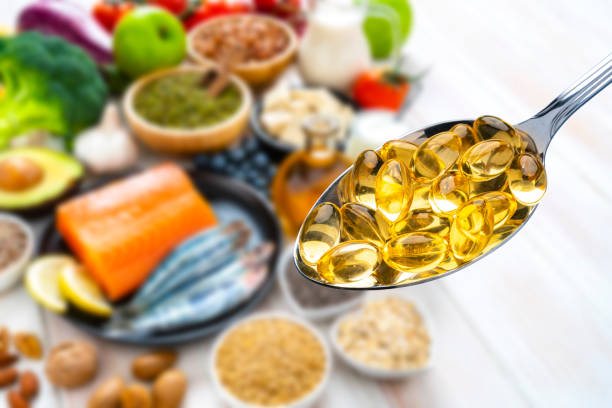The #1 Rated Blood Sugar Formula
Just 3 Grams of Omega-3s per Day Could Help Lower Blood Pressure, New Research Suggests

Therefore, the effect of fish oil on blood pressure manifests fully after 3 to 4 weeks.
From helping you live longer to reducing risk for depression and anxiety, there are dozens of science-backed reasons to include omega-3 fatty acids in your diet. For years, we've known that one of the strongest correlations between these heart-healthy fats and wellness has been related to blood pressure, but we haven't known exactly how much is enough to move the needle.
Recent Studies on Omega 3
Recently, scientists set out to study if there is an ideal dose of omega-3s to help the 47% of Americans who currently have a high blood pressure diagnosis. The optimal Rx might be surprisingly doable, they found: According to a research review published June 1 in the Journal of the American Heart Association, people who consume between 2 and 3 grams of combined DHA and EPA omega-3 fatty acids (two forms of omega-3 fats found in many forms of fish and seafood) lowered both their systolic and diastolic blood pressure levels by an average of 2 mm Hg. The differences were even more notable among those who already had hypertension; systolic blood pressure (the top number) decreased by about 4½ mm Hg.
What This Omega-3 Fatty Acid Research Found
To land at this conclusion, the scientists reviewed 71 clinical trials that were published worldwide between 1987 and 2020. This ended up being a pool of nearly 5,000 participants, aged 22 to 86, who took dietary and/or prescribed supplements of omega-3s for an average of 10 weeks. Some, but not all, of the individuals had blood pressure.
The researchers examined the link between blood pressure and two types of omega-3 fatty acids, DHA and EPA, either alone or combined. They found that 3 grams of combined DHA and EPA offered a notable benefit. A little more might be even better, especially among populations who are at higher risk of heart disease, the researchers explain in the review. The largest declines in blood pressure were seen in those older than 45 and who had hypertension—people who would likely benefit the most from the naturally blood pressure-lowering qualities of omega-3s.
To rewind a bit, there are three main categories of omega-3s:
- Alpha-linolenic acid (ALA)
- Eicosapentaenoic acid (EPA)
- Docosahexaenoic acid (DHA)
ALA is found mainly in nuts and plant oils—including flaxseed, soybean and canola oils—and certainly has its place. But it's less bioavailable, or less easily utilized by the body, hence why the researchers suggested a combination of DHA and EPA, which are found naturally in fish and other seafood, as well as seaweed and algae (the only vegan sources of DHA and EPA). Any and all of these omega-3s can also be found in supplemental form as well.
To put this into context, according to the National Institutes of Health Office of Dietary Supplements, these items would get you well on the way to meeting the mark.
- 4 ounces of cooked Atlantic salmon: 2.44 g of combined DHA and EPA
- 4 ounces of cooked Atlantic herring: 2.28 g of combined DHA and EPA
- 6 ounces of cooked Atlantic mackerel: 2.04 g of combined DHA and EPA
The Bottom Line
Diet isn't the only detail to take into account when considering your overall high blood pressure treatment strategy. Keeping an eye on stress levels, sleep quality and quantity, alcohol consumption and physical activity are also essential as part of your heart-healthy, blood-pressure-smart Rx.
It certainly can't hurt to keep tabs on omega-3 consumption as part of your lifestyle, of course, in whatever form fits your dietary needs. If you think you might be falling shy on omega-3s, talk to your doctor about an omega-3 index test.
There was no change in blood pressure among those with normal blood pressure. Fish-oil supplements are not recommended as an alternate therapy for people who have been prescribed blood pressure-lowering medications.






